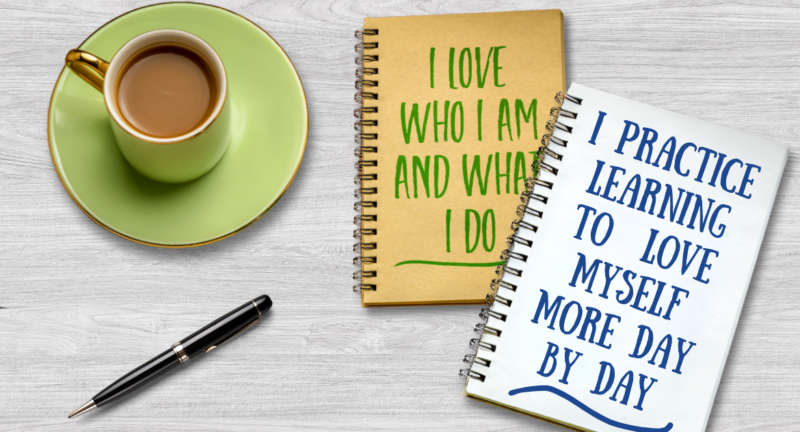

Learn How To Trust Yourself With Tips From a Therapist
April 13, 2024 by Counseling and Wellness Center of Pittsburgh how to trust yourself, self compassion, self confidence, self efficacy, self empowerment, self improvement, self trust, trust yourself, trusting yourself 0 comments
The journey of beginning to trust yourself is a profound odyssey that begins in childhood and evolves into adulthood. Rooted in our early experiences, self trust forms the bedrock of our confidence and decision-making. However, it’s not immune to erosion, often influenced by external factors and our own responses to them.
This blog explores the developmental aspects of trusting yourself, delves into why it may falter in childhood, and offers insights for you to learn how to trust yourself.
How Self Trust Develops
- Early Attachment and Care: The seeds of self trust are sown in the early bonds between a child and their caregivers. Responsive, consistent care fosters a sense of security and lays the foundation for the child to trust in their needs being met.
- Encouragement of Exploration: Allowing children to explore their surroundings, take risks, and make choices contributes to the development of self trust. Positive encouragement during these explorations helps build confidence in their abilities.
- Affirmation of Effort: Recognizing and praising a child’s efforts, even in the face of failure, reinforces the idea that trying is valuable. This affirmation cultivates a belief in the child’s capacity to learn and grow.
- Modeling Healthy Self Trust: Children observe and emulate the behaviors of significant adults in their lives. Modeling how you trust yourself involves demonstrating resilience, taking responsibility for mistakes, and approaching challenges with a positive mindset.
- Cultivation of Autonomy: Gradually granting children autonomy and decision-making opportunities, appropriate to their age and maturity, helps them build a sense of control over their lives. This autonomy fosters self trust in their ability to make choices.
Why Self Trust Can Erode in Childhood
- Negative Feedback and Criticism: Consistent negative feedback or harsh criticism, whether from caregivers, peers, or authority figures, can instill self-doubt and erode a child’s trust in their abilities.
- Overprotection and Micromanagement: Overprotective parenting that limits a child’s opportunities to take risks and make decisions on their own can hinder the development of self trust. Micromanaging every aspect of their lives sends the message that their choices are not trusted.
- Unrealistic Expectations: Setting unrealistically high expectations without considering a child’s individual capabilities can lead to a constant sense of falling short. This gap between expectations and reality erodes self trust.
- Lack of Positive Affirmation: Insufficient acknowledgment of a child’s efforts and achievements, or a focus solely on their mistakes, can undermine their confidence. Positive affirmation is essential for the cultivation of trusting yourself.
- Invalidation of Feelings: One crucial factor that can contribute to the erosion of self trust is the invalidation of a child’s feelings. When parents dismiss or minimize a child’s emotions, it sends the message that their feelings are not important or valid, leading to a disconnect from their own internal cues.

What Does It Mean To Not Trust Yourself?
Not trusting yourself can manifest in various ways and can have different meanings for different individuals. Here are a few potential aspects to consider:
- Lack of Confidence: If you don’t trust yourself, it might indicate a lack of confidence in your abilities, decisions, or judgments. This lack of confidence can affect various aspects of your life, including relationships, work, and personal development.
- Fear of Failure: If you don’t trust yourself that could be linked to a fear of failure. You might doubt your ability to handle challenges or believe that you are prone to making mistakes. This fear can be paralyzing and may prevent you from taking risks or pursuing your goals.
- External Validation: If you constantly seek validation and approval from others, it could be a sign that you don’t trust yourself or your own judgment. Relying too much on external opinions can lead to a lack of independence and a sense of insecurity.
- Negative Self-Talk: Pay attention to your inner dialogue. If you often engage in negative self-talk, criticizing your abilities or decisions, it could be a sign that you don’t trust yourself. This negative self-perception can impact your mental well-being and overall outlook on life.
- Past Traumas or Failures: Past experiences, especially traumatic or challenging ones, can influence your self trust. If you’ve faced setbacks or betrayals, it might contribute to a hesitancy to trust yourself in future situations.
- Perfectionism: Striving for perfection in everything you do can be a sign that you don’t trust yourself to handle imperfections or mistakes. Perfectionism can lead to constant stress and dissatisfaction.
- Inability to Make Decisions: If you find it challenging to make decisions, big or small, it could be a sign of self-doubt. The fear of making the wrong choice might be preventing you from trusting your judgment.

Learning How To Trust Yourself As An Adult
Learning how to trust yourself is a gradual process. Here are some ways you can begin trusting yourself:
- Reflecting on Early Experiences: Understanding the roots of your self trust involves reflecting on early experiences and relationships. Identify patterns, both positive and negative, that might have shaped your sense of how to trust yourself.
- Keep The Promises You Make to Yourself: Consistently honoring promises made to yourself establishes a foundation of reliability and accountability, fostering self trust. Each fulfilled commitment reinforces the belief in your capabilities and strengthens your sense of personal integrity. Building a track record of keeping promises to yourself cultivates a positive self-image and deepens your ability to trust yourself.
- Embrace Your Emotions—Don’t Fight Them: Ignoring your emotions won’t make them vanish. Denying your true feelings undermines the ability to trust yourself. Be honest about feeling sad, mad, or jealous. Acknowledging these emotions, both positive and negative, is essential for building self trust. Once acknowledged, you can work through them, understand their roots, and gradually shift towards compassion, empowerment, and begin to trust yourself.
- Listen to Your Intuition: Trust your gut feelings and intuition. Pay attention to the subtle nudges and internal cues. Listening to your intuition is a powerful way to reconnect with your inner wisdom and build confidence in your decision-making abilities.
- Cultivate Self Trust Through Self-Affirmation: In the journey of learning to trust yourself, take a crucial step by affirming to yourself that you are enough. Acknowledge your strengths and unique qualities, fostering a sense of confidence in your abilities. This self-affirmation lays the groundwork for strengthening your trust in your own judgment and capabilities.
- Establish and Maintain Personal Boundaries: Create and uphold healthy boundaries within yourself. Clearly outline what is acceptable and unacceptable for your personal growth. Respecting these boundaries not only reinforces self-respect but also fosters the ability to trust yourself.
- Navigate Decision-Making with Confidence: Embracing autonomy in decision-making requires internal focus and self-acceptance. Prioritizing your own values over seeking constant validation and feedback from others is crucial. While desiring approval is natural, allowing external recognition to overshadow your own priorities can lead you astray.
- Embrace Uncertainty: Accept that life is inherently uncertain. Embracing uncertainty and being adaptable in the face of change fosters resilience and self trust. When you begin to trust yourself to navigate the unknown, that builds confidence.
- Spend Time Alone: Allocate time for solitude to develop a genuine connection with yourself, gradually finding joy in your own company. Effective self trust hinges on internal communication; without it, building self-confidence and self-love remains elusive.
- Professional Support: Consider seeking the support of a therapist or life coach. Professional guidance can provide valuable insights, tools, and strategies to help you navigate challenges, build self-awareness, and trust yourself.

Rebuilding Your Ability To Trust Yourself
Self trust is a dynamic element that evolves through our formative years and continues to shape our adult selves. Recognizing its roots, understanding why it may falter, and actively participating in its reconstruction are vital steps in this transformative journey.
Rebuilding your ability to trust yourself involves a commitment to self-reflection, self-compassion, and intentional efforts to create a positive and supportive environment. As adults, we have the power to reclaim and reinforce this essential element, fostering a resilient and confident foundation for our ongoing growth and well-being.
Remember, the ability to trust yourself is an ongoing process that requires patience and dedication. It’s about cultivating a compassionate and empowering relationship with yourself, embracing your uniqueness, and recognizing your inherent worthiness. As you embark on this journey, celebrate the progress you make and appreciate the resilience it takes to trust yourself more fully. Trust the process, trust your instincts, and most importantly, trust yourself.
Looking For Support In Learning To Trust Yourself?
If you feel that professional support could assist you in navigating challenges, fostering self-awareness, and enhancing your ability to trust yourself, don’t hesitate to reach out to us. You can contact us at 412-856-WELL or simply fill out the form below to get started.
Reviewed by: Stephanie Wijkstrom, LPC, and Founder of The Counseling and Wellness Center of Pittsburgh
Related Posts
Positive Affirmations For The New Year? Try Neutral Affirmations Instead
December 31, 2023
Positive Affirmations For The New Year? Try Neutral Affirmations Instead In...
How Feeling Left Out Affects Mental Health
October 22, 2024
How Feeling Left Out Affects Mental Health Feeling left out from friends and...



